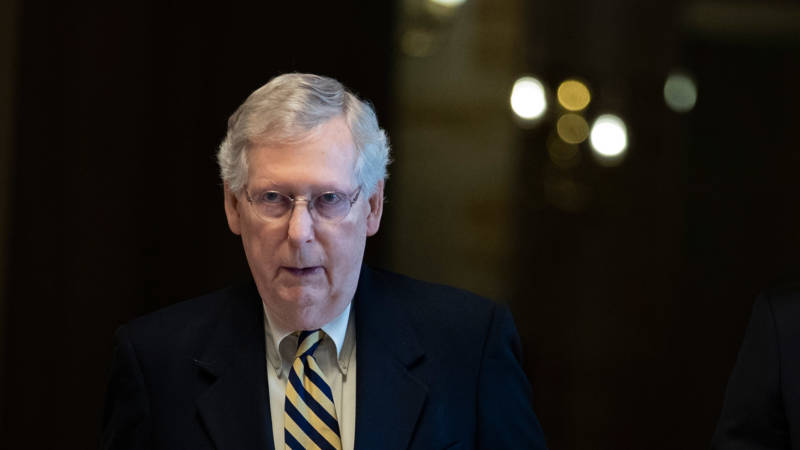In an effort to speed confirmation of President Trump’s nominees, Senate Republicans voted Wednesday to reduce the amount of time lawmakers may debate district court and non-cabinet level appointments from 30 hours to two hours. The move was only the third use of the so-called “nuclear option,” a procedure that allows the Senate to change rules with a simple majority vote. Some Senate watchers predict that the drastic shortening of deliberation time may trigger a push by Democrats to eliminate the filibuster entirely, should they gain control of the Senate in 2020. We’ll talk about what all this means for the judiciary and the future of the Senate.
Senate GOP Invokes 'Nuclear Option' to Cut Debate Time on Some Nominees to Two Hours
52:46

Senate Majority Leader Mitch McConnell (R-KY) leaves his office at the U.S. Capitol, March 25, 2019 in Washington, DC. (Photo: Drew Angerer/Getty Images)
Guests:
Gregory Koger, professor of political science; author, "Filibustering: A Political History of Obstruction in the House and Senate"<br />
Molly Reynolds, fellow in governance studies, Brookings Institution; author, "Exceptions to the Rule: The Politics of Filibuster Limitations in the U.S. Senate"<br />
David Levine, professor, UC Hastings College of the Law
Sponsored